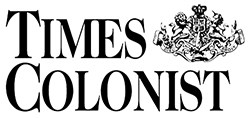People who were involuntarily admitted to a psychiatric facility had inadequate paperwork in almost three-quarters of cases, according to a report issued Thursday by B.C. Ombudsperson Jay Chalke.
Mandatory and legally required admission forms were completed in just 28 per cent of the cases studied across the province, Chalke said.
 Psychiatric hospital patient/Shutterstock
Psychiatric hospital patient/Shutterstock
“Involuntary detention and treatment is the most intrusive form of mental health care available,” said Chalke in a statement. “This is a failure to comply with the Mental Health Act, the law that allows people who are gravely ill — our friends, daughters, sons, parents and grandparents — to receive timely treatment while protecting their legal rights.”
Today, Chalke released a 124-page report called Committed to Change: Protecting the Rights of involuntary Patients under the Mental Health Act. It studied involuntary admissions in June 2017 across the province.
The report highlights personal stories, including that of one woman who was held in a seclusion room without knowing why. She didn’t know the reason for her involuntary detention, wasn’t informed of her rights, and, after being discharged, found not all of her forms were completed.
About 15,000 mentally ill people were involuntarily detained in one of B.C.’s more than 70 psychiatric facilities in 2016/17 — a number that has grown by approximately 70 per cent in the last decade.
The report suggests the legal rights of mentally ill patients involuntarily admitted to psychiatric facilities across the province are being trampled.
It found required forms for involuntary patient admissions were missing, late or improperly completed.
The analysis found there was no “consent for treatment” form, called a Form 5, in 24 per cent of patient admissions across all health authorities.
The report shows a wide variation among hospitals in issuing the consent to treatment form in designated facilities with more than 20 involuntarily admissions in June 2017.
The lowest compliance was nine per cent at the University Hospital of Northern British Columbia, with a high of 100 per cent in both Richmond and Peace Arch District hospitals.
Also showing high compliance were both Burnaby and Royal Columbian hospitals at 98 per cent. Nanaimo Regional General Hospital was also in the top half with 91 per cent.
Victoria General Hospital, however, was in the bottom five hospitals with consent for treatment forms in only 57 per cent of cases, according to the report. Meanwhile, at Cowichan District Hospital, consent to treatment forms were filled out in 62 per cent of cases, and at Royal Jubilee Hospital, in 77 per cent of cases.
Of six health authorities, Island Health is in the bottom half with 79 per cent compliance — where involuntarily admitted patient files from 2017 contain a consent for treatment form.
When it comes to overall forms required for involuntary admission, Vancouver Coastal Health, Northern Health and the Provincial Health Services Authority had the lowest overall compliance rates.
The various forms used in an involuntary admission to a mental health facility ask for critical information, including reasons for detention, consent and description of the treatment. The forms require that patients’ rights are explained and that notification is given to relatives.
In some cases where forms were filled out, it was done with only one-word descriptions or standard rubber stamps rather than detailed answers about the specific treatment, or how the patient met the criteria for involuntary admission, the report says. Other forms lacked the necessary signatures or dates.
Involuntary admissions are often a last resort for mentally ill people who are at risk of harming themselves or others, the report says.
However, “the state, when it uses such an extraordinary power, has a critically important duty to follow the law,” said Chalke. “This includes properly completing documentation of what is happening to an individual and why. To not do so is not only unacceptable, it is contrary to law.”
The report makes 20 findings and 24 recommendations around oversight and accountability and regular compliance audits.
The ages of those involuntarily committed to mental health facilities were clustered in the 18-30 age category and also seniors.
The report makes 24 recommendations, all of which have been accepted in principle by government and health authorities and focus on three key areas:
• Regular compliance audits, setting annual 100 per cent compliance targets, improved records management and increased public reporting
• Training staff and physicians in the necessity of completing forms and compliance with the Mental Health Act.
• An independent rights advisor service that would work in designated facilities in B.C. and provide advice to patients about the circumstances of their detention and their options.



